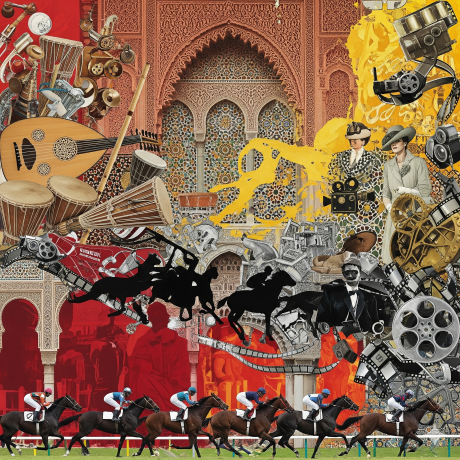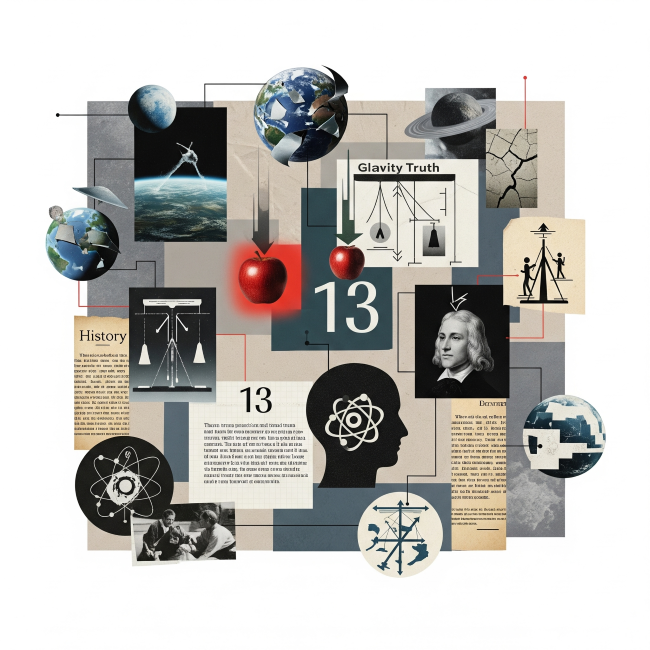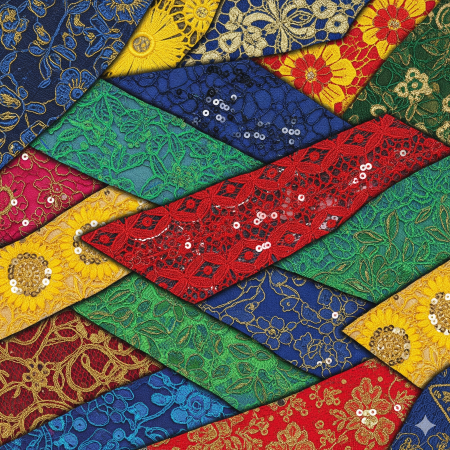Opinion: In Defence of "To Kill A Monkey" and Nollywood Theatrics
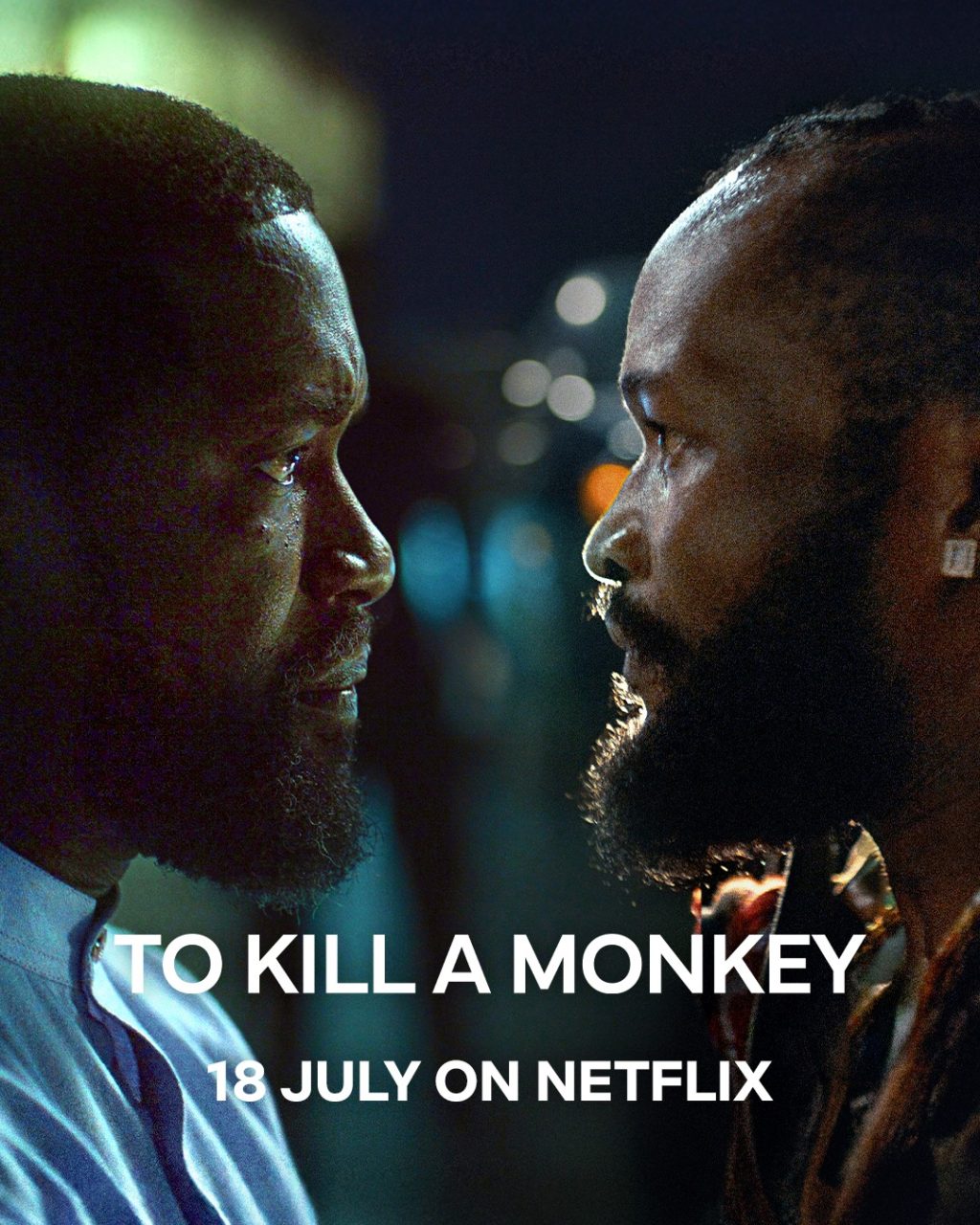
Shortly after its release, a swarm of critics poured out their inky reviews of Kemi Adetiba’s chart-topping Netflix series To Kill a Monkey. Some critics spared no emotion, praising the acting, but calling the entire series indulgent, overdone, chaotic, and “an act of creative endurance.”
At the core of the argument was the belief that Adetiba had failed to construct a coherent narrative, and that the show was overwrought with long-winded dialogue, exaggerated performances, and an excessive need to "show and show again."
The palpable anger behind the words could slice yam in half. The show, in some critic’s view, was overdone, overwritten, over-acted, and altogether too much. Too much emotion. Too much dialogue. Too many characters. Too much showing. Too much suffering.
It’s a review that reads not just as frustration with a piece of media, but as discomfort with a mode of storytelling that refuses to follow established cinematic rules—the kind often written outside of the continent.
Perhaps what To Kill a Monkey does “wrong” is also what makes it unapologetically Nigerian.
Our Lives Are Not Quiet. Our Stories Shouldn’t Be.
The essay complains that Efe’s suffering is hammered in too hard. That the supervisor is too overbearing, Madam Adunni is too evil, and the show doesn’t “trust the audience” to understand struggle without spelling it out in bold letters.
Efe’s suffering is a mirror, magnified and a little dramatic, yes—but real. His frustration is our frustration. His bad luck is familiar. His spiral is relatable. If the show lingers on it, it’s because most Nigerians don’t get a quick fix. Life grinds slowly, and painfully, until something breaks.
The Tyranny of Subtlety and the Foreign Gaze
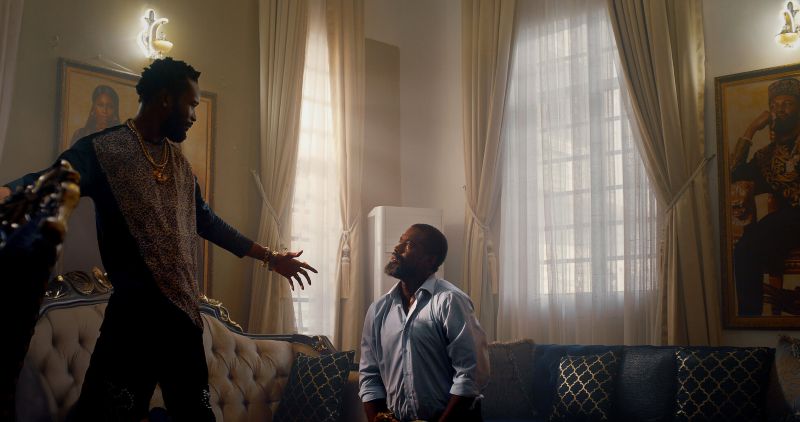
Image Credit: Netflix
There is a long-standing idea in global cinema criticism that subtlety equals sophistication. That if a film can do more with silence than sound, with suggestion than declaration, it is somehow more intelligent, more artistic, more worthy of acclaim.
These values are not neutral. They are inherited from a cinematic tradition shaped by European arthouse movements and Hollywood restraint, styles that were exported globally as the gold standard of film.
What we consider “tasteful” in film has been heavily influenced by aesthetics, where emotional restraint was equated with civility and anything “too loud,” “too expressive,” or “too much” was labeled unsophisticated.
Why else would an emotionally raw, 7 minute long therapy monologue byCarmen Berzatto in The Bearbe called “a masterpiece of performance,” while Efe’s equally vulnerable, culturally grounded outpourings in To Kill a Monkey are dismissed as excessive?
Why does grief feel powerful in English but embarrassing in pidgin?
There’s a double standard in how we receive cinematic emotion depending on where it’s coming from. Perhaps, we celebrate the rawness of pain in slow-burning character studies, but seem uncomfortable when Nigerian pain is delivered in full volume, full color, full presence.
Dialogue as Cultural Performance
Image Credit: Premium Times Nigeria
Another critique of Adetiba’s series is its “excessive dialogue.” Characters talk too much, scenes go on for too long, exposition is stretched.
But what is this “too much,” really?
In Nigerian life, dialogue is not a simple vehicle for plot—it’s a performance of personality, status, wisdom, and emotion. From family meetings to roadside arguments, from church pulpits to pepper soup joints, Nigerians talk. At length. In layers. Repetition, idioms, parables, and dramatic pauses are not accidental. They are cultural.
What’s considered tight and efficient in American screenwriting might feel emotionally distant to a Nigerian audience that craves verbal texture and rhythm. Dialogue is our love language. It’s also how we mourn, accuse, confess, forgive, and boast.
Cutting a monologue short may serve global audiences, but it may taint the emotional experience for a Nigerian viewer.
Exaggeration Isn’t the Opposite of Depth
Some critics also claim that the show’s writing lacks trust in the audience’s ability to infer character depth, citing Efe’s prolonged suffering and the supposedly overdrawn personalities of the people around him. But why must character development be quiet to be considered deep?
In Nigeria, pain is not hidden. Joy is not whispered. You don’t signal emotional change through a single raised eyebrow. You throw your body into it. You cry, you shout, you fall to the ground, you call on God and your ancestors. Our emotional expression is not just louder; it’s more visible, more socially expected, more performative.
What the critic calls “overdone” is, to many of us, real.
A Plot Reflecting Chaos Is Still a Plot
There’s also the argument that To Kill a Monkey has a plot problem—that things happen too suddenly, that story beats are unearned. But this assumes a kind of linear storytelling structure that feels foreign to many Nigerians.
Life here is not linear. It is disjointed, unstable, and full of sudden turns. A man can be jobless on Monday and in a mansion by Friday, not because it’s fiction, but because that is the reality of a country built on hustle, chance, and corruption. We do not live in a world where neat narrative arcs make sense. In fact, if things go too smoothly, we become suspicious.
When Efe’s life changes rapidly after meeting Obozz-Da-Bozz, played by Bucci Franklin, it doesn’t break the story, it propels it. Nigerians understand that transformation, like misfortune, often arrives unannounced.
Who Gets to Define “Good” Cinema?
A final thread in the critique is that Nollywood needs more “self-awareness.” That our filmmakers must evolve and reflect “complexity” in character and story.
But again, complexity is not measured by how quiet or cold a performance is. It is not measured by still camera shots or whispered conversations in dark kitchens. Complexity exists in spectacle too.
It exists in chaos. It exists in how we perform pain with full-bodied intensity, in how we build emotion through repetition and exaggeration, and in how our films don’t just tell stories, but echo the lived noise of a country that is anything but subtle.
If Nigerian filmmakers are telling stories that resonate with Nigerian audiences, if people are watching, sharing, talking, and seeing themselves, then that is success. That is cinema.
Let Our Stories Be Loud
To Kill a Monkey is not perfect. No show is. But to critique it by asking it to be quieter, slower, and more subtle is to miss what it’s trying to do entirely. Not every story needs to be muted and minimalist. Not every character has to be a brooding introvert walking alone through rainy streets and Wes Anderson sets. Not every film needs to aim for a Palme d’Or.
Some stories should be loud. They should entertain. They should overflow. They should talk too much. They should cry openly. They should reflect not an imagined artistic ideal, but the messy, vibrant truth of the society that birthed them.
And when they do that honestly, that’s not a failure.
That’s a win.
You may also like...
If Gender Is a Social Construct, Who Built It And Why Are We Still Living Inside It?

If gender is a social construct, who built it—and why does it still shape our lives? This deep dive explores power, colo...
Be Honest: Are You Actually Funny or Just Loud? Find Your Humour Type

Are you actually funny or just loud? Discover your humour type—from sarcastic to accidental comedian—and learn how your ...
Ndidi's Besiktas Revelation: Why He Chose Turkey Over Man Utd Dreams

Super Eagles midfielder Wilfred Ndidi explained his decision to join Besiktas, citing the club's appealing project, stro...
Tom Hardy Returns! Venom Roars Back to the Big Screen in New Movie!

Two years after its last cinematic outing, Venom is set to return in an animated feature film from Sony Pictures Animati...
Marvel Shakes Up Spider-Verse with Nicolas Cage's Groundbreaking New Series!

Nicolas Cage is set to star as Ben Reilly in the upcoming live-action 'Spider-Noir' series on Prime Video, moving beyond...
Bad Bunny's 'DtMF' Dominates Hot 100 with Chart-Topping Power!

A recent 'Ask Billboard' mailbag delves into Hot 100 chart specifics, featuring Bad Bunny's "DtMF" and Ella Langley's "C...
Shakira Stuns Mexico City with Massive Free Concert Announcement!

Shakira is set to conclude her historic Mexican tour trek with a free concert at Mexico City's iconic Zócalo on March 1,...
Glen Powell Reveals His Unexpected Favorite Christopher Nolan Film

A24's dark comedy "How to Make a Killing" is hitting theaters, starring Glen Powell, Topher Grace, and Jessica Henwick. ...

